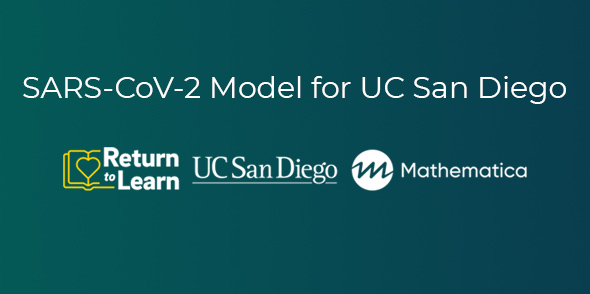Universities across the United States continue to grapple with how to resume on-campus education and research activities while mitigating the risk of COVID-19 transmission. One tool for guiding campus reopening decisions is agent-based modeling, a computational approach that simulates the actions and interactions within a population, enabling university to predict disease spread under a range of conditions. Last fall, in partnership with Mathematica, the University of California San Diego (UC San Diego) used agent-based modeling to inform its on-campus reopening decisions amid the pandemic.
On this episode of On the Evidence, guests Ravi Goyal and Natasha Martin share lessons from using the model to predict the spread of COVID-19 in a university setting. Goyal is a senior statistician at Mathematica and an expert on epidemic modeling. Martin is an infectious disease economic modeler and an associate professor in the Division of Infectious Diseases and Global Public Health at UC San Diego.
Goyal and Martin led the partnership between Mathematica and UC San Diego to estimate the potential impact of masking, social distancing, and regular testing on the spread of COVID-19 at UC San Diego. The model illustrated, for example, that testing at a higher frequency with lower accuracy is better than testing at a lower frequency with higher accuracy. The collaboration also produced an interactive data visualization to educate the public, including students, faculty, and university staff, about the relative benefits of following public health guidance on masking and social distancing.
Listen to the full episode below. A special video recording of the episode is also available at the top of this page.
Want to hear more episodes of On the Evidence? Visit our podcast landing page or subscribe for future episodes on Apple Podcasts or SoundCloud.
Show notes
Visit our COVID-19 landing page for an up-to-date overview on Mathematica's involvement in the COVID-19 response.
Read more about the agent-based model and its results in an article published in Clinical Infectious Diseases, a peer-reviewed medical journal.
Learn more about the COVID-19 agent-based modeling partnership between UC San Diego and Mathematica.
Explore the web tool Goyal and Martin discuss on the podcast.
Learn more about Mathematica's partnership with the Pennsylvania Department of Education, which used agent-based modeling to inform K-12 school leaders about the relative risks of various operating and closure strategies.
Learn more about Mathematica's work on using wastewater testing to detect early trends in COVID-19 infections.


